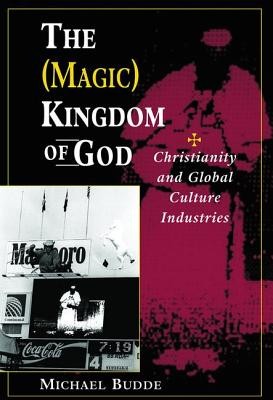
- We will send in 10–14 business days.
- Author: Michael L Budde
- Publisher: Routledge
- ISBN-10: 0813330769
- ISBN-13: 9780813330761
- Format: 15.2 x 22.9 x 1.1 cm, softcover
- Language: English
- SAVE -10% with code: EXTRA
Reviews
Description
In The (Magic) Kingdom of God, Michael Budde offers a multidisciplinary analysis of the ?global culture industries increasingly powerful, centralized corporate conglomerates in television, advertising, marketing, movies, and the like?and their impact on Christian churches in industrialized countries. Utilizing ideas from contemporary and classical schools of political economy, the author explains why the study of global culture industries is essential for understanding the current era of global capitalism.In suggesting that the cultural ecology shaped by these industries undermines many of the primary processes and structures through which people become committed Christians, Budde offers a novel utilization of linguistic-based theories of religious formation. Responses by churches to the new situation?more religious education or attempts to use the global culture industries for Christian purposes?are explored and found lacking. For the subversive praxis of Jesus of Nazareth to endure in the cultural ecology of postmodernism, Budde argues, churches must come to embrace their role as radical and countercultural alternative communities in which lay formation becomes a central preoccupation.
EXTRA 10 % discount with code: EXTRA
The promotion ends in 18d.05:46:36
The discount code is valid when purchasing from 10 €. Discounts do not stack.
- Author: Michael L Budde
- Publisher: Routledge
- ISBN-10: 0813330769
- ISBN-13: 9780813330761
- Format: 15.2 x 22.9 x 1.1 cm, softcover
- Language: English English
In The (Magic) Kingdom of God, Michael Budde offers a multidisciplinary analysis of the ?global culture industries increasingly powerful, centralized corporate conglomerates in television, advertising, marketing, movies, and the like?and their impact on Christian churches in industrialized countries. Utilizing ideas from contemporary and classical schools of political economy, the author explains why the study of global culture industries is essential for understanding the current era of global capitalism.In suggesting that the cultural ecology shaped by these industries undermines many of the primary processes and structures through which people become committed Christians, Budde offers a novel utilization of linguistic-based theories of religious formation. Responses by churches to the new situation?more religious education or attempts to use the global culture industries for Christian purposes?are explored and found lacking. For the subversive praxis of Jesus of Nazareth to endure in the cultural ecology of postmodernism, Budde argues, churches must come to embrace their role as radical and countercultural alternative communities in which lay formation becomes a central preoccupation.


Reviews